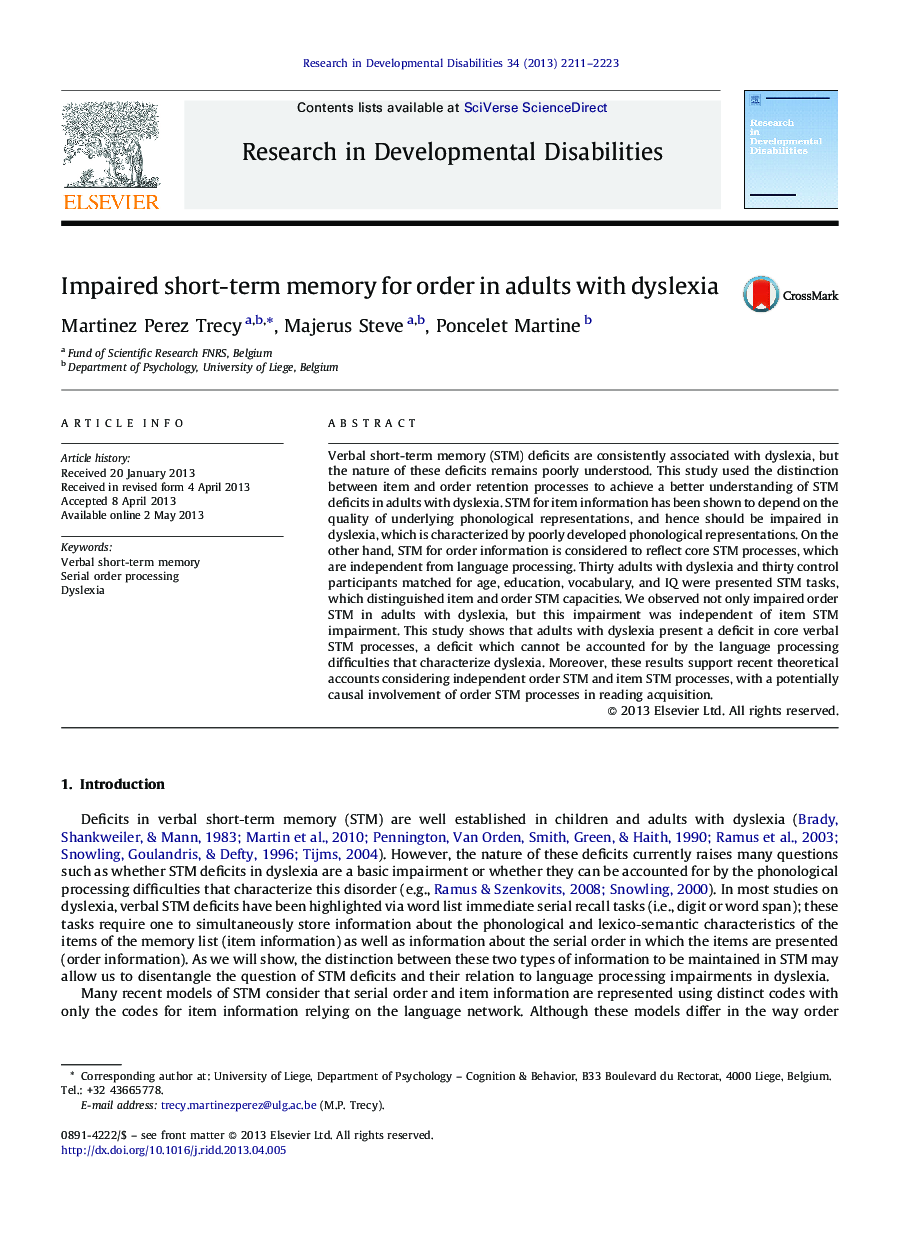| Article ID | Journal | Published Year | Pages | File Type |
|---|---|---|---|---|
| 371258 | Research in Developmental Disabilities | 2013 | 13 Pages |
•Dyslexia is associated with STM deficit, but the nature of this deficit is unclear.•We show that item STM is impaired in adults with dyslexia.•This item STM deficit is likely to be a consequence of poor phonological processes.•We show that order STM is also impaired but independently from the item STM deficit.•Order STM deficits may be an important contributing factor to dyslexia.
Verbal short-term memory (STM) deficits are consistently associated with dyslexia, but the nature of these deficits remains poorly understood. This study used the distinction between item and order retention processes to achieve a better understanding of STM deficits in adults with dyslexia. STM for item information has been shown to depend on the quality of underlying phonological representations, and hence should be impaired in dyslexia, which is characterized by poorly developed phonological representations. On the other hand, STM for order information is considered to reflect core STM processes, which are independent from language processing. Thirty adults with dyslexia and thirty control participants matched for age, education, vocabulary, and IQ were presented STM tasks, which distinguished item and order STM capacities. We observed not only impaired order STM in adults with dyslexia, but this impairment was independent of item STM impairment. This study shows that adults with dyslexia present a deficit in core verbal STM processes, a deficit which cannot be accounted for by the language processing difficulties that characterize dyslexia. Moreover, these results support recent theoretical accounts considering independent order STM and item STM processes, with a potentially causal involvement of order STM processes in reading acquisition.
